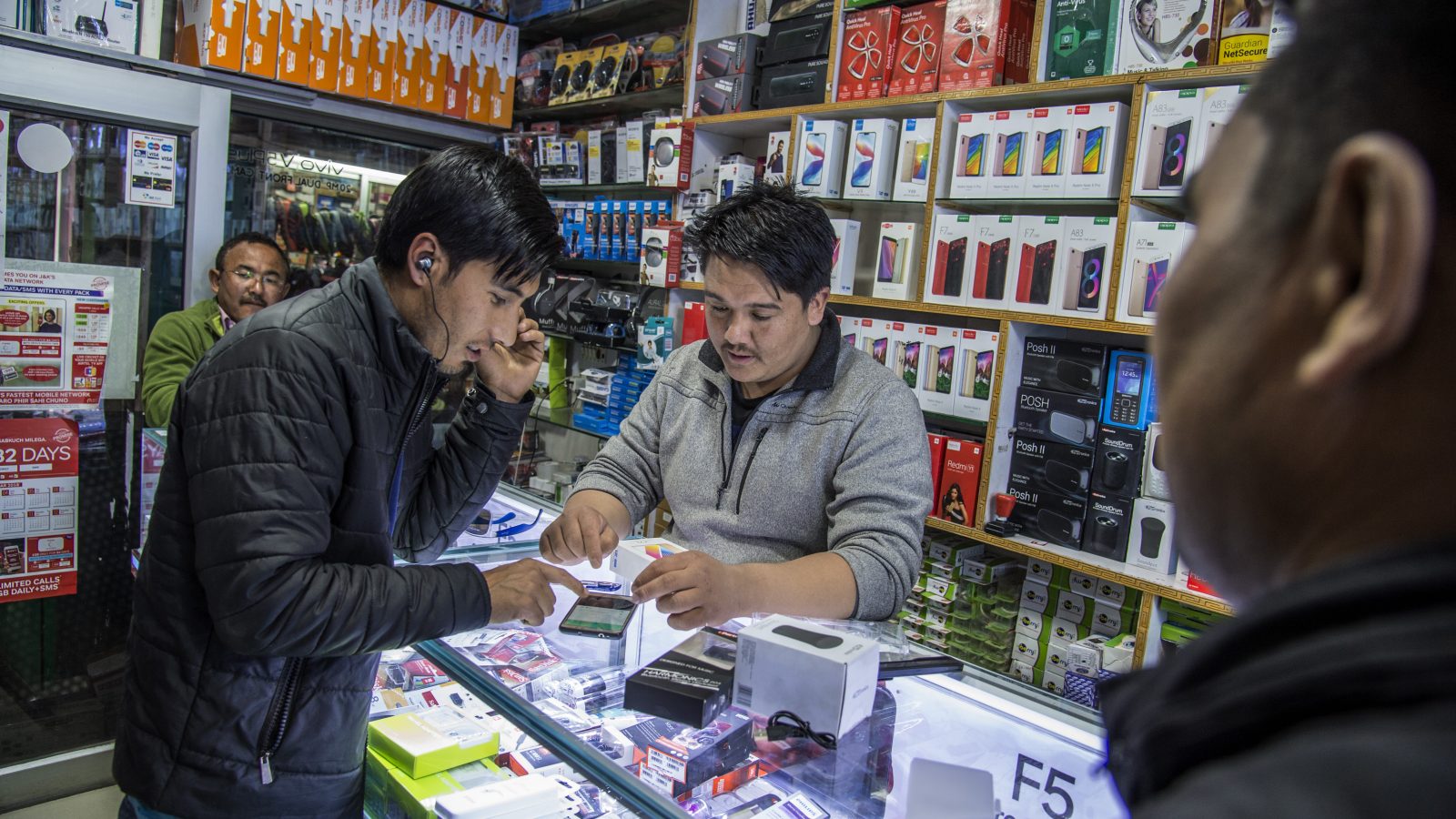Multi-feature Strategy, Low Price
In a roadside electronics store in Shahganj, a small town in the northern Indian state of Uttar Pradesh, Pankaj Kesari displays prominently boxes of popular smartphone brands such as Samsung, Xiaomi, and Jio owned by Reliance.
But recently, many of Kesari’s customers are choosing a lesser-known brand called Tecno. Kesari’s customers prefer Tecno phones because they feel that the brand offers them more value for their money.
The popular Spark Go 2024 model from Tecno, priced at around 7,000 rupees (about 2 million dong), features three cameras and similar features to the iPhone. “Customers with a higher budget won’t come here. They go to big retailers to buy Samsung, Oppo, and Vivo,” Kesari said.
Owned by Transsion Holdings and headquartered in Shenzhen, China, Tecno is the fifth largest smartphone company worldwide.
In the past year, Transsion has emerged as a competitive player in the Indian market, where other heavyweight Chinese competitors like Xiaomi and BBK Electronics have been fiercely competing for almost a decade.

In addition to Tecno, Transsion also sells smartphones in India under the Itel and Infinix brands, with Itel phones having designs similar to the iPhone.
In the past year, Transsion has launched twice as many stylish and affordable devices in India. They have also ramped up marketing and hired top Bollywood celebrities to advertise their brand.
This strategy seems to have paid off. Transsion’s profits in India nearly doubled compared to the same period last year in the fiscal year 2023, reaching $25 million. Last year, the company also captured 8.6% of the Indian smartphone market.
“Transsion differentiates itself in the affordable segment by delivering essential features and specifications, including 5G mobile technology and large RAM,” said Shilpi Jain, a senior analyst at Counterpoint Research, to Rest of World.
“Transsion’s products are really good, and their numbers are increasing because people are finding great value in their products,” a senior executive at Jio said to Rest of World.
Transsion is widely known as the “Smartphone King of Africa” with a notable 40% market share on the continent thanks to its affordable prices and extensive distribution network.
The company is currently trying to replicate its success story in Africa in other markets such as India, Southeast Asia, and Latin America by using similar tactics.
Antonio Tercero, Infinix director in Mexico, previously told Rest of World: “We want to sell an accessible phone, so the device has really good technical specifications – such as long battery life.”
One of Transsion’s successful strategies in Africa was adapting devices to meet local requirements, such as launching four-SIM feature phones, allowing users to insert multiple SIM cards into a phone and switch depending on the availability of network coverage.

From 2016 to 2017, the company established a manufacturing unit in Noida, India, and hired a local leadership team with market expertise. “There were some designs that we specifically tailored for the Indian market to cater to the needs of consumers or compete with dominant models,” a company executive revealed.
In 2017, Transsion launched five smartphones in India with biometric sensors that work even with greasy fingers, catering to the country’s hand-to-mouth eating habits.
Challenging in the Premium Segment
According to India CEO Arijeet Talapatra, in the first 8 months of 2023, the company has released 17 Tecno models and plans to launch 13 more. Transsion also introduced the most affordable 5G phone by the end of last year under the Itel brand.
The company’s focus on small towns and cities is a key factor in its success. “The youth in big cities have brand consciousness, so Transsion is expanding outside major cities,” telecom analyst Ajay Sharma said.
To execute this strategy, Transsion offers higher profit margins for retailers. According to Kamran, a distributor in Uttar Pradesh, Transsion provides retailers with a 5% profit margin on each device – significantly higher than the 3.5% they receive on Xiaomi’s Mi phones and the 2.5% on Samsung devices.
However, recently, Transsion has struggled to compete in the segments above the $180 mark.
A Tecno executive revealed that last year, the company laid off 200 salespeople in retail stores who were hired to promote mid-range smartphones.
Expert Sharma said, “Transsion needs to build brand value if it wants to compete with brands like Samsung and Vivo” in more expensive segments because “their brands are perceived as high-end. Store owners won’t prioritize Tecno as much as other brands like Samsung and Vivo.”
+












